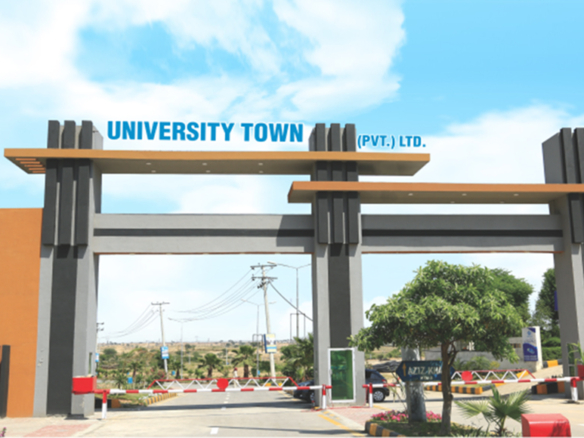Green Line Bus Rapid Transit (BRT) project in Karachi that began in 2016 will be completed by July 2021.
The Green Line BRT project was initiated in early 2016, with the estimated cost was Rs25 billion, under the supervision of the Sindh Infrastructure Development Company Limited (SIDCL), a federal entity. Original plans envisioned development work would be complete by the end of 2017, but frequent changes in design, tussles between the centre and Sindh authorities, and official lethargy have stalled progress repeatedly.
The present government has announced several dates for the project’s completion since 2018.
In a July 2020 briefing, the National Assembly’s Standing Committee on Planning and Development was informed that the Green Line will start between March and June 2021.
The Federal minister, last week, unveiled a plaque to commemorate the ground-breaking of BRT Common Corridor from Taj Medical Complex to Municipal Park one of the major thoroughfares of the city, MA Jinnah Road.
The project is in its final stages and people can use it by next year. “It will be up and running by next July,” Asad Umar said recently.
Federal Minister for Planning, Development, Reforms and Special Initiatives, Asad Umar on Saturday urged the Sindh government should utilise Rs700 billion that has been allocated in the provincial budget for the projects in Karachi.
Work on the roof of the under-construction Numaish Chowrangi underpass was completed two months ago and traffic is already running over it. Work on the Phase II will begin with the construction of rainwater drains along the sidewalks. This will be followed by work on the footpaths in the middle. The sidewalks and footpaths will be levelled, so that there is more space to maintain the flow of existing traffic. The dedicated Green Line route will be built on the middle pavement.
The original plans called for building an elevated structure from Gurumandir to Municipal Park. That was dropped after objections were raised by the Quaid-e-Azam Mazar Management Board and civil society. Instead, it was decided to build an underpass on Numaish Chowrangi.

When the tender for construction was awarded at the end of 2017 and the median in front of the KGA ground was excavated, the Sindh government raised objections and argued that the Centre should provide space for the other BRT lines to pass through the same point. The plan changed again, wasting another eight months. Finally, work on the underpass started in October 2018, but the coronavirus pandemic cost us another four months.
Federal government-run Sindh Infrastructure Development Company Limited (SIDCL) is set to import 100 buses for local public transport, out of which 80 will be for the Green Line and 20 will be for the Orange Line (a Sindh Govt led project). As per reports, the buses are to be imported in June 2021. The tender process for the project is currently near completion and should be awarded next month.
Fed Minister, Asad Umar told that the following projects that the government is responsible for are:
- K-IV water supply,
- Railways projects,
- KCR,
- Freight corridor from Karachi Port to Pippri, and
- The Green Line.
- Cleaning of Nullahs
He claimed that all projects are being worked on.
Under the PM’s Karachi Transformation Plan (KTP), around Rs572 billion were earmarked for the city’s mass transit system and rail and road transport systems. Rs267 billion were allocated for solid waste management, clearing storm water drains, and the resettlement of people living in encroachments built on the city’s waterways.
The plan allocated Rs141 billion for the city’s sewage treatment plants, Rs92 billion for water supply projects and Rs41 billion for roads.
AsadUmar said work is also under way on cleaning of drains in Karachi to permanently settle the problem of flooding after rains.
“Encroachments are being removed in the initial phase of the cleaning of nullahs for which the Sindh government has started work from Mehmoodabad area,” he said.
“As soon as the provincial government removes the encroachments around the major nullahs of the city, the federal government will start its work.”
The federal minister told a reporter that around Rs65 billion were distributed among the needy, poor and deserving people in Sindh through the Ehsaas Programme.
Governor Sindh, Imran Ismail said “The K-4 Water project has been handed over to the Water and Power Development Authority (Wapda). Wapda would soon present its report to the Prime Minister in this regard,”.
Ismail said the process to hire a consultant for the K-4 project has been completed and the K-4 would be a big water supply project that would help to cater the water requirement of Karachi to a greater extent.
Cooperative Societies of Karachi which are safe or dubious for investment






Join The Discussion